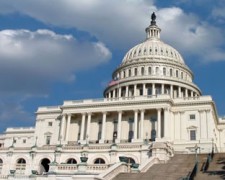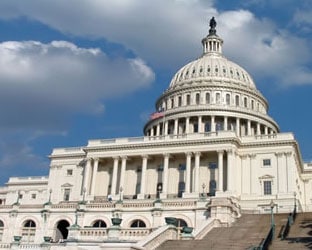 Competing music royalty bills are being floated on Capitol Hill, and Pandora exec Tim Westergren has joined broadcasters in opposing the latest one from. Jerrold Nadler (D-NY) in favor of an earlier one put forth by Jason Chaffetz (R-UT).
Competing music royalty bills are being floated on Capitol Hill, and Pandora exec Tim Westergren has joined broadcasters in opposing the latest one from. Jerrold Nadler (D-NY) in favor of an earlier one put forth by Jason Chaffetz (R-UT).
The Chaffetz bill is the simpler of the two – its primary aim is to level the digital distribution playing field by setting royalty rates for both satellite/cable radio and internet radio at the same level.
The Nadler bill would set a preliminary royalty charge for streaming done by broadcast radio stations based on money not being paid to artists and labels due to the lack of an airplay royalty, as a prelude to creating an airplay royalty.
Westergren says Nadler’s bill would perpetuate the current disparity between digital platforms, and therefore he opposes it in favor of the Chaffetz bill.
When the Chaffetz bill came out, Westergren had said he was happy to have a bill that left consideration of a broadcast royalty out. He said that every time it is included, the bill turns into a massive lobbyist battle and in the end nothing gets done at all. He therefore would like the digital element to be addressed on its own merits.
According to Hillicon Valley, the music industry does not like the Chaffetz bill. Even though there is no particular objection to equal rates for digital distributors, the fact that parity would be achieved by lowering the rates for internet services is seen as a net loss for musicians, since less cash would be coming from that source.
Nadler’s’ bill would achieve digital parity by jacking up satellite/cable rates rather than by lowering internet rates, all while bring broadcast deeper into the equation, a move popular with the music industry but guaranteed to earn pushback from all distributors.
Westergren said that the standard method of determining royalties for composers/publishers would solve the performance royalty problem but charged that the music industry is opposed to consideration of that option.
RBR-TVBR observation: The good news is that we are very late in the lifespan of the 112th Congress. A heaping helping of the time remaining to this group will be spent on the campaign trail. Two clashing visions for a royalty regimen are on paper, adding knots to an issue that is already far too complex to be properly addressed in a short time frame with campaign distractions. We’ll be watching to see if any preliminary hearings are put on the schedule when Congress comes back to town in September, but we sincerely doubt that we’ll see anything meaningful happen until the 113th Congress is seated.





